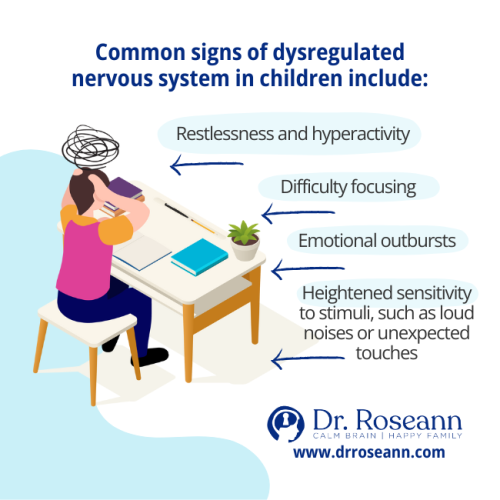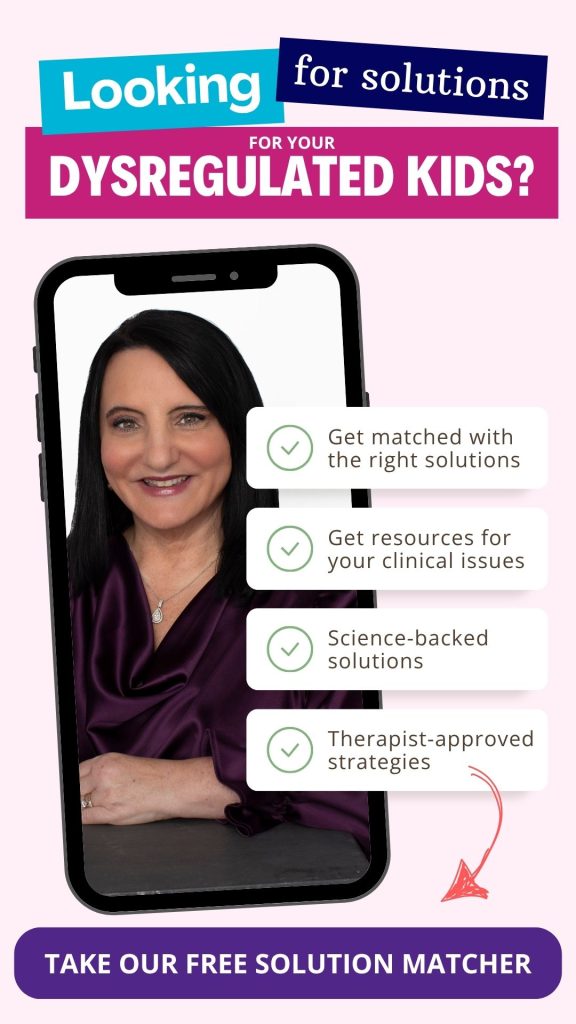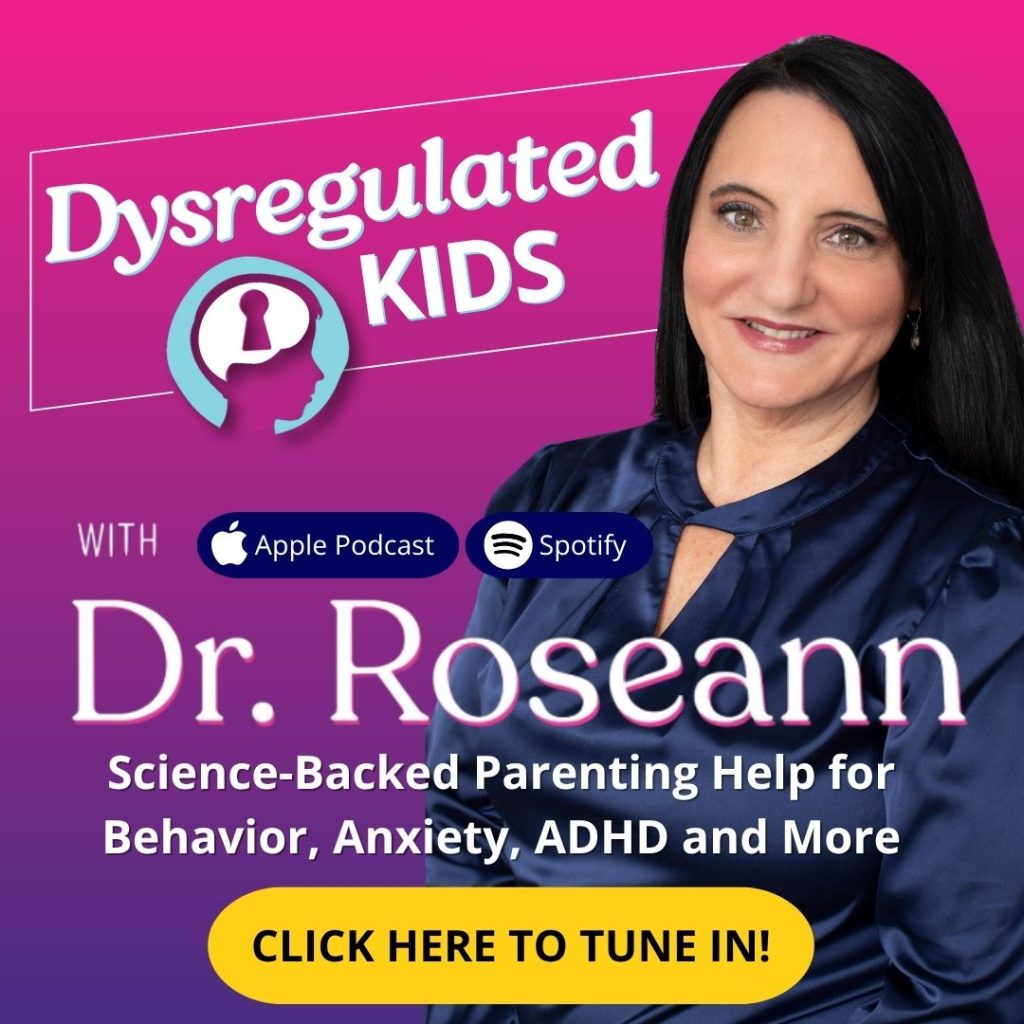Estimated reading time: 7 minutes
If your child melts down over small things, struggles to focus, or seems “always on edge,” it’s not defiance—it’s their nervous system doing its best to protect them. The child nervous system controls how the brain and body respond to stress, learning, and connection. When it’s dysregulated, kids can’t simply “calm down” or “pay attention”—they’re stuck in survival mode.
In this blog, I’ll explain how your child’s nervous system shapes behavior and learning, what dysregulation looks like, and how to help your child’s brain find calm and resilience again.
What It Means When Your Child’s Nervous System Is Dysregulated
A dysregulated nervous system means your child’s body is frequently in “fight, flight, or freeze” mode. Their brain perceives normal situations—like a sibling teasing them or a difficult homework task—as threats.
When a child’s nervous system is overactive, they may:
- React impulsively or with big emotions
- Have trouble focusing or sleeping
- Seem easily overwhelmed or withdrawn

How to Tell if Your Child’s Nervous System Is Stuck in Stress Mode
A chronically stressed child often shows both behavioral and physical signs.
Common signs include:
- Constant fidgeting or restlessness
- Emotional outbursts over small frustrations
- Frequent stomachaches or headaches
- Avoidance of new tasks or people
- Difficulty falling or staying asleep
Children with ADHD, anxiety, or trauma histories are especially vulnerable because their brains stay on high alert even when the threat is gone.
Why Your Child Overreacts to Small Things
Overreactions are nervous system alarms—not conscious choices. When the lower brain (amygdala) senses danger, it triggers a cascade of stress hormones before the logical brain can step in.
You might see this when:
- A child panics over a minor mistake
- They yell “I hate you!” when embarrassed
- They refuse to try something new for fear of failure
💬 A dad named Tom noticed his 8-year-old daughter, Lily, erupted when he corrected her math homework. Once they practiced breathing and body awareness before homework time, she began finishing work calmly and even asking for help.
Can a Dysregulated Nervous System Affect Learning and Attention?
Absolutely. A child’s nervous system determines whether their brain is ready to learn or stuck in defense mode. When stress hijacks the brain, attention, memory, and processing all suffer.
| Regulated Nervous System | Dysregulated Nervous System |
| Calm, focused, open to learning | Distracted, anxious, avoidant |
| Body relaxed; steady breathing | Tense muscles; shallow breathing |
| Positive social engagement | Irritability, withdrawal |
| Able to recover from setbacks | Meltdowns, shutdowns, or fatigue |
Teachers often misinterpret dysregulation as laziness or lack of motivation. In reality, it’s the brain protecting itself from perceived danger.
How Emotions and the Nervous System Work Together in Kids
The child’s nervous system and emotional brain are tightly connected. When the body senses safety, emotions flow and settle easily. When it senses threat, the brain prioritizes protection—often through anger, avoidance, or withdrawal.
Simple strategies like deep breathing, movement breaks, and connection time activate the parasympathetic nervous system, which helps the brain shift from chaos to calm.

What Helps Calm a Child’s Nervous System Naturally
Children need consistent, sensory-based regulation tools to retrain their brain for safety. Start with:
- Rhythmic movement: jumping, rocking, walking
- Deep pressure: hugs, weighted blanket, body pillow
- Slow breathing: 4-count inhale, 6-count exhale
- Nature exposure: sunlight and outdoor play reduce cortisol
- Predictable routines: structure signals safety to the brain
How Long It Takes to Regulate a Child’s Nervous System
Healing the nervous system isn’t instant—it’s about consistency, not perfection. Some children show improvement in weeks; others take months of steady practice. The key is daily sensory regulation and emotional co-regulation with caregivers.
Progress looks like fewer meltdowns, quicker recoveries, and longer moments of calm.
Daily Habits That Support a Balanced Nervous System for Kids
To keep your child’s nervous system resilient, focus on brain-friendly routines:
- Regular sleep and meal times
- Sensory play (clay, swinging, dancing)
- Family connection rituals (game night, gratitude circle)
- Digital boundaries to reduce overstimulation
- Emotional labeling (“I feel nervous, not bad”)
Dr. Roseann’s Therapist Tip
In my 30+ years of clinical practice, I’ve learned that kids don’t outgrow dysregulation—they outgrow it when adults help their brains feel safe.
Try this today:
Before reacting to your child’s meltdown, take one slow breath and lower your voice. This signals safety to their nervous system.
Why it works:
Calm energy helps their mirror neurons regulate faster.
Remember:
Connection always calms before correction.
When a child’s nervous system is dysregulated, it impacts every part of life—focus, learning, emotions, and family harmony. But with brain-based tools and consistency, your child can move from chaos to calm.
Parent Action Steps
FAQs
How do I know if my child’s nervous system is healthy?
A regulated child can recover from stress, stay engaged in play and learning, and show flexibility after challenges.
Can diet affect my child’s nervous system?
Yes. Blood sugar swings, artificial dyes, and processed foods can increase stress reactivity. Balanced protein and omega-3 fats support brain regulation.
Should I talk to a professional if my child stays dysregulated?
If meltdowns or anxiety are daily, seek help from a clinician trained in nervous system–based therapies such as neurofeedback, occupational therapy, or somatic work.
Can screen time dysregulate the nervous system?
Too much screen time—especially fast-paced content—can overstimulate the brain and keep it in stress mode. Use calming, slower-paced shows and screen-free breaks.
Citations:
Dunn, W. (2022). Sensory Processing Framework and Its Application in Pediatrics. American Journal of Occupational Therapy, 76(4), 1–12. https://doi.org/10.5014/ajot.2022.046132
Henderson, S. E., Sugden, D. A., & Barnett, A. L. (2021). Developmental coordination disorder and self-regulation in children. Child Neuropsychology, 27(3), 325–342. https://doi.org/10.1080/09297049.2021.1898670
Miller, L. J., Nielsen, D. M., & Schoen, S. A. (2024). Occupational therapy interventions for sensory modulation disorders in children. Journal of Occupational Therapy Research, 44(2), 101–114. https://doi.org/10.1016/j.jotr.2024.02.005
Thompson, L. M., et al. (2023). Amygdala-prefrontal connectivity and emotional regulation in children. Journal of Neuroscience, 43(15), 2728–2739. https://doi.org/10.1523/JNEUROSCI.2023-03-15
Wolff, J. J., et al. (2023). Physiological correlates of emotional dysregulation in children. Frontiers in Human Neuroscience, 17, 1028743. https://doi.org/10.3389/fnhum.2023.1028743
Ziegler, D. A., et al. (2022). Digital overstimulation and cognitive outcomes in school-age children. Pediatrics, 150(3), e20220571. https://doi.org/10.1542/peds.2022-0571
Dr. Roseann Capanna-Hodge is a licensed mental health expert that is frequently cited in the media:
- The Experience Miracles Podcast Why Traditional Discipline Fails Dysregulated Kids (And What Actually Works)
- Next Avenue Recharge Your Mind With Daily Brain Exercises
- Exhausted to Extraordinary Parent (Video) How to Build a Resiliency Mindset In Your Child – In Just 7 Minutes
Always remember… “Calm Brain, Happy Family™”
Disclaimer: This article is not intended to give health advice, and it is recommended to consult with a physician before beginning any new wellness regimen. The effectiveness of diagnosis and treatment varies by patient and condition. Dr. Roseann Capanna-Hodge, LLC, does not guarantee specific results.
Are you looking for SOLUTIONS for your struggling child or teen?
Dr. Roseann and her team are all about science-backed solutions, so you are in the right place!
©Roseann Capanna-Hodge










